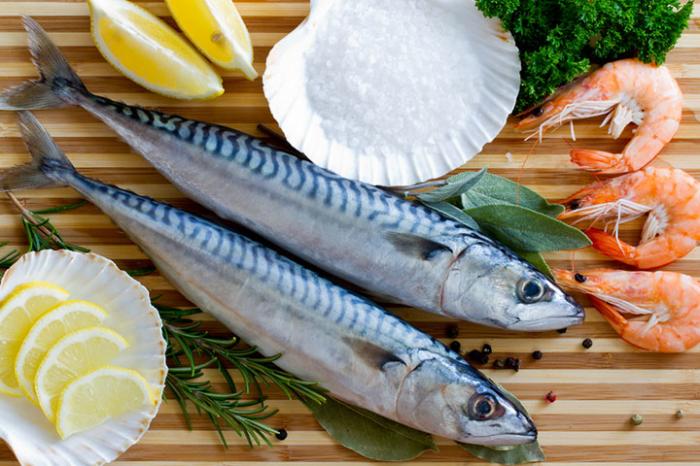Breastfeeding is a critical time for both mother and baby. What you eat can affect your baby’s health and development. Fish is a nutritious option, but not all types are safe to consume while breastfeeding. This article explores which fish to avoid, why, and how to make safe choices for a healthy diet.
Why Fish Choices Matter During Breastfeeding
Fish is a good source of protein and essential nutrients, including omega-3 fatty acids, which are important for your baby’s development. However, some fish can contain high levels of mercury and other contaminants that can affect both you and your baby.
1. Mercury in Fish
Mercury is a heavy metal that can be harmful if consumed in large amounts. It can accumulate in the body and potentially pass into breast milk. High levels of mercury can affect your baby’s developing nervous system.
2. Contaminants in Fish
Aside from mercury, some fish may contain other harmful substances, such as polychlorinated biphenyls (PCBs), which can also affect health. It is important to choose fish that are low in contaminants to ensure both your safety and your baby’s well-being.
Fish to Avoid While Breastfeeding
Certain types of fish are known for their high mercury levels and should be avoided or limited during breastfeeding. Here are the main ones to watch out for:
1. Shark
Shark is known for having high levels of mercury. Due to the shark’s long lifespan and its position at the top of the food chain, it accumulates more mercury than other fish. Avoid eating shark to minimize mercury exposure.
2. Swordfish
Swordfish is another fish with high mercury levels. It is often recommended to avoid swordfish, especially for pregnant and breastfeeding women. Consuming swordfish can pose a risk due to its mercury content.
3. King Mackerel
King mackerel is high in mercury and should be avoided while breastfeeding. Other types of mackerel, such as Atlantic mackerel, have lower mercury levels and can be safer choices.
4. Tilefish
Tilefish, particularly from the Gulf of Mexico, is known to contain high levels of mercury. It is best to avoid tilefish during breastfeeding to reduce the risk of mercury exposure.
5. Bigeye Tuna
Bigeye tuna is high in mercury and should be avoided. Although it is a common fish in many cuisines, its mercury levels make it a less safe option for breastfeeding mothers.
6. Marlin
Marlin is another fish with elevated mercury levels. It’s advisable to avoid marlin to ensure you are not exposing yourself or your baby to high levels of mercury.
Safer Fish Choices for Breastfeeding Mothers
While some fish should be avoided, there are plenty of safe options that can provide essential nutrients without high mercury levels.
1. Salmon
Salmon is a great choice for breastfeeding mothers. It is rich in omega-3 fatty acids and typically has lower levels of mercury compared to other fish. Wild-caught salmon is preferable to farmed salmon due to lower contamination risks.
2. Sardines
Sardines are another excellent option. They are low in mercury and high in omega-3s and calcium. Sardines are also small fish, which means they accumulate fewer contaminants.
3. Trout
Trout is generally low in mercury and is a good source of omega-3 fatty acids. Freshwater trout, in particular, is considered a safe choice.
4. Herring
Herring is a small fish that is low in mercury and rich in nutrients. It provides omega-3 fatty acids and vitamin D, making it a healthy option during breastfeeding.
5. Anchovies
Anchovies are small fish with low mercury levels. They are packed with nutrients and can be a safe addition to your diet. They also provide omega-3 fatty acids and protein.
General Tips for Safe Fish Consumption
When consuming fish while breastfeeding, it’s important to follow general guidelines to minimize risk.
1. Choose Low-Mercury Fish
Opt for fish that are known to be low in mercury. This helps ensure that you are getting the benefits of fish without the risks associated with high mercury levels.
2. Limit Consumption
Even with low-mercury fish, it’s a good idea to limit your consumption to 2-3 servings per week. This helps reduce the risk of accumulating contaminants.
3. Be Mindful of Local Fish
If you are eating fish caught locally, be aware of potential contamination issues. Check local advisories for information on safe fish consumption in your area.
4. Prepare Fish Properly
Cooking fish thoroughly can help reduce the risk of foodborne illness. Avoid raw or undercooked fish, and ensure that fish is prepared in a safe and hygienic manner.
See also: Is The Carnivore Diet While Breastfeeding Safe
Conclusion
Choosing the right fish while breastfeeding is important for both your health and your baby’s well-being. Avoid fish that are high in mercury, such as shark, swordfish, king mackerel, tilefish, bigeye tuna, and marlin. Instead, opt for safer choices like salmon, sardines, trout, herring, and anchovies. By making informed choices and following safe consumption practices, you can enjoy the nutritional benefits of fish while minimizing potential risks. If you have any concerns about your diet or need personalized advice, consult with a healthcare provider or a registered dietitian.


